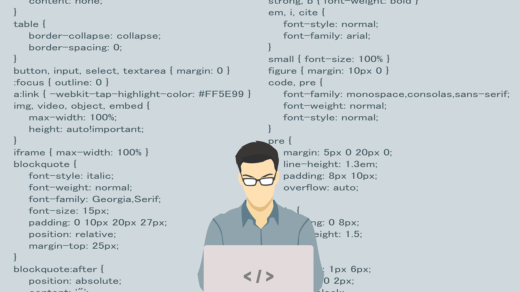Computing Power: The ability of computers to perform computations has substantially improved since the first ones were built. In the last few decades, Technology has advanced at an exponential rate, making computer power that was once unthinkable a reality. In this article, we will cover the growth of computing power, the future of computing, and quantum computing.
The Early Days of Computing
The first computers were big, room-sized devices built in the 1940s that were mostly utilized for scientific calculations. The first electronic computer was known as ENIAC (Electronic Numerical Integrator and Computer) which was built in 1945 and measured the size of the room, ENIAC used a lot of power and had about 18,000 vacuum tubes. During World War II, the U.S. Army employed the computer to calculate ballistics.
The first commercial computers were made in the era of 1950s and 1960s. Despite being smaller than their forerunners, these computers could nonetheless fill a room. The first 4004 microprocessor, was developed in 1971 by Intel, and it was the basis for the first personal computer. It was a 4-bit processor used in calculators and other small electronic devices that could carry out basic mathematical operations.
The Advent of Supercomputers
The idea of supercomputers first surfaced in the 1970s and 1980s. These were specialized computers made to carry out complicated calculations more quickly than conventional computers. The Control Data Corporation’s CDC 7600, the first supercomputer, was built in 1976. It processed information at a rate of roughly 36 megaflops. (millions of floating-point operations per second).
Another significant advancement in computing capability was the 1976 release of the Cray-1 supercomputer. It was the fastest computer available at the time, processing data at up to 250 megaflops per second. Weather forecasting, scientific simulations, and other specialized jobs requiring a lot of computing power were the main uses of these supercomputers.
Personal Computers and Beyond
Personal computers became increasingly accessible to the general population and more affordable price in the era of 1990s. Microsoft introduced the first personal computer with Windows in 1985. It was released in 1981, and the IBM Personal Computer (PC) contributed to the rise in popularity of personal computers. These computers were capable of carrying out intricate computations and running software programs that were previously only accessible on larger mainframe systems.
The idea of cloud computing arose in the 2000s. Through the internet, cloud computing enables customers to access computing power and storage remotely. Users can rent computer power and storage space through cloud computing services provided by businesses like Amazon Web Services and Google Cloud Platform.
The Future of Computing Power
There are a lot of intriguing breakthroughs in the works, which bode well for the future of computing power. The expansion of artificial intelligence is one of the most important advances. (AI). Massive quantities of computer power are needed by AI in order to process data and carry out intricate calculations. AI research and development is receiving significant funding from businesses like Google and Microsoft, which will result in more potent computers that can process enormous amounts of data.
The introduction of quantum computing is a further positive step. Qubits, which are used in quantum computing in place of conventional bits, enable vastly quicker calculations. Quantum computing, which is currently at the experimental stage, has the potential to completely alter a variety of sectors, including finance, medicine, and encryption.
Quantum Computing:
A brand-new and fascinating field of study called quantum computing has the potential to completely alter the way computers operate. It carries out calculations that are not possible with classical computers by utilizing the concepts of quantum mechanics. We shall examine the fundamentals of quantum computing, its benefits, and its prospective applications in this post.

What is Quantum Computing?
Bits are used by traditional computers to store and analyze data. Both a 0 and a 1 can be represented by a bit. On the other hand, quantum computers make use of quantum bits or qubits. A qubit can simultaneously represent a 0 and a 1, or both. This characteristic, known as superposition, enables quantum computers to carry out several calculations at once, greatly accelerating the computation process.
Entanglement is yet another essential aspect of quantum mechanics. This implies that, despite their distance from one another, two or more qubits can be linked together such that their properties become correlated. This characteristic enables quantum computers to outperform conventional computers in some calculations.
Advantages of Quantum Computing
The potential of quantum computing to carry out calculations that are beyond the capabilities of traditional computers is one of its main advantages. Quantum computers, for instance, factor large numbers considerably more quickly than traditional computers. Large prime numbers are frequently employed in cryptography to encrypt data; hence, this trait is crucial. These codes might be broken by a quantum computer far more quickly than by a conventional computer.
In addition to computing, quantum technology has the potential to revolutionize chemistry and materials science. In these domains, complicated chemical reactions and materials must be simulated and modeled using a lot of computing power. The computer power required to carry out these simulations more quickly and correctly can be provided by quantum computing.
Potential Applications of Quantum Computing
Numerous industries, including finance, healthcare, and transportation, could be impacted by quantum computing. Listed below are a few potential uses for quantum computing:
- Optimization
- Drug Discovery
- Financial Modeling
- Cryptography
1) Optimization
Finding the most effective route or schedule is one way that quantum computing can be used to optimize complex systems, such as transportation and logistics.
2) Drug Discovery
The behavior of molecules can be simulated using quantum computing, which can aid in drug development.
3) Financial Modeling
Quantum computing can be used to analyze huge financial datasets and improve investment plans.
4) Cryptography
The ability to crack codes using quantum computing could have a profound influence on cybersecurity.
Current State of Quantum Computing
Although it has the potential to completely change computing, quantum computing is still in its infancy. The scale and complexity of quantum computers are currently constrained, and their construction and upkeep are challenging.
But in recent years, there has been a lot of development. Research and development into quantum computing are being heavily funded by corporations like IBM, Google, and Microsoft. They have created quantum computers that have tens or even hundreds of qubits and can carry out basic operations.
Conclusion
In conclusion, since the development of the first computers, computational power has advanced significantly. The evolution of computing has been exponential, starting with room-sized devices and ending with personal computers and cloud computing today. The development of quantum computing and AI bodes well for the future of computing power.
In several areas, including cryptography, drug discovery, financial modeling, and optimization, quantum computing has the potential to revolutionize computer power and offer considerable advantages over traditional computing. Although the technology is still in its infancy, recent developments are encouraging, and we may anticipate that quantum computing will have a substantial impact on many industries in the years to come.
Read More:
The Rise of Artificial Intelligence in the Healthcare Industry
ChatGPT has achieved 100 million users | Open AI






















